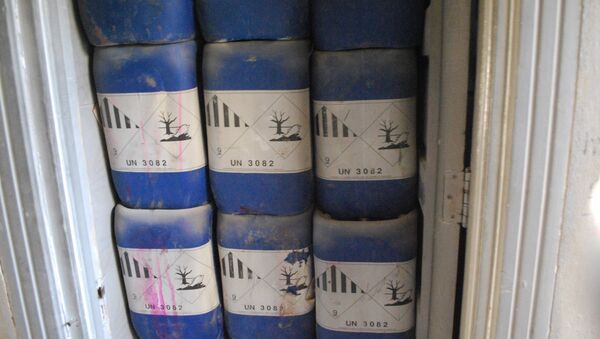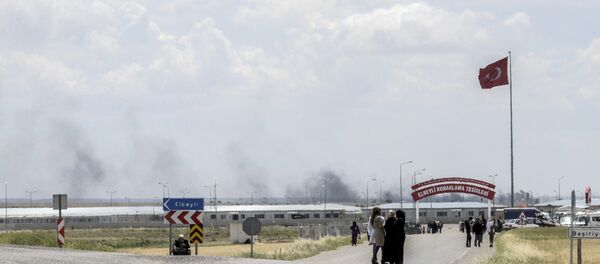"Nusra Front and [Daesh] and other organizations continued to store chemical weapons in urban and residential areas. And we have sent more than a hundred telegrams to the Security Council and the Organisation for the Prohibition of Chemical Weapons, telling them or sending them information about chemical weapons being brought to Syria from Iraq and from Turkey," Muallem said.
"Yesterday, the Russian representative at the United Nations made a proposal for forming a neutral and non-politicized committee to initiate investigations. Our experience with such commissions, because by now we are used to these commissions, because we have been subject to such accusations, has not been encouraging… We condemn the use of chemical weapons anywhere against anybody… but in order not to jump to conclusions we are coordinating with the Russian side in order to see what the efforts aimed at forming that committee are," Muallem said.
According to the minister, any such commission should start its work "from Damascus."
"In any case, we are coordinating on a daily basis with Russia," Muallem added.
On Tuesday, the Syrian National Coalition of Revolution and Opposition Forces reported that some 80 people were killed and 200 injured earlier on that day in a chemical weapon attack in the town of Khan Shaykhun in Idlib, blaming the Syrian army for the incident. A source in the Syrian army later told Sputnik that the army did not have chemical weapons and the allegations could be part of anti-Damascus propaganda.
"All statements categorically denied the use of chemical weapons by our armed forces in the past as well as in the present and in the future," Muallem said, referring to the incident with chemical weapons in the Syrian province of Idlib.
Moreover, the Syrian government forces have never used and will never use chemical weapons against not only civilians, but terrorists as well, the country's Foreign Minister Walid Muallem said.
"I stress to you once again that our army has never used chemical weapons and will not use chemical weapons… not only against our civilians… but also against the terrorists who are attacking our civilians through their mortar shells," Muallem said.
The foreign minister stressed that the government forces had made a significant breakthrough.
"Is it logical or reasonable that we use chemical weapons at the time that we have started to see that change in the international public opinion that started to realize the reality of the situation in Syria?" Muallem said.
Following a 2013 chemical weapon attack in Syria's East Ghouta, Syria joined the Convention on the Prohibition of Chemical Weapons. This was the result of an agreement between Russia and the United States on the destruction of chemical weapons in the Arab country under the control of the Organisation for the Prohibition of Chemical Weapons (OPCW), which also prevented the US military intervention in Syria. In January 2016, the OPCW announced that all chemical weapons in Syria had been destroyed.
However, in June 2016, the US State Department released a report saying Syria continued to use chemical substances against citizens and suggesting the country could also stockpile chemical weapons. UN High Representative for Disarmament Affairs Kim Won-soo said that the UN and OPCW experts still could not confirm the complete destruction of chemical weapon production facilities in Syria.





